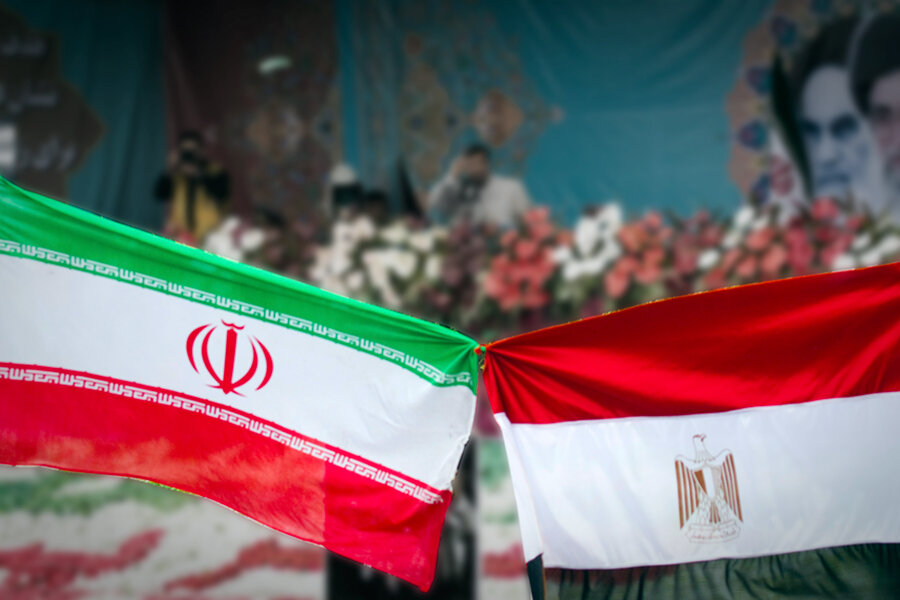TEHRAN — Informed Egyptian sources have reported the existence of a powerful movement within the Egyptian security entities as well as the army which strongly oppose Egypt's participation in any military coalition against Iran, Al-Araby-Al-Jadeed reported on Tuesday.
The website quoted high-ranking Egyptian sources as saying that several high-ranking Egyptian army commanders had strongly voiced their opposition to any confrontation with Iran in a meeting held at the Egyptian Armed Forces headquarters.
The sources added that the same position has been reiterated at the Egyptian National Security Council meeting.
The sources pointed out that the talks took place after the proposal has been made to form a regional military alliance like NATO with the inclusion of Egypt to counter Iran.
According to sources, one of the main purposes of Egyptian President Abdel Fattah al-Sisi's visit to Oman is to send a message of confidence to Iran through Muscat about Egypt's refusal to participate in any confrontation against Iran.
The message will also be conveyed ahead of a meeting of Arab leaders with Joe Biden in Jeddah in mid-July.
Egyptian sources have stressed that opposition to any military confrontation with Iran is both al-Sisi's personal opinion and the opinion of a large movement in the country's military and security institutions, and stems from the idea that there is no reason for any conflict with Iran, because Iran has created no concerns for Egypt.
The sources added that the idea of Egypt joining such a military alliance against Iran is an idea that some countries in the region and the West are promoting, and recently some Western diplomats have been heard saying that Egypt needs a large army, which should be used against Iran.
In this regard, a former Egyptian diplomat has stressed that al-Sisi may be forced to join a regional military pact under pressure, but joining such an alliance is nothing but Cairo’s mere cooperation in the face of direct threats and al-Sisi wants to convey this message to Tehran.
The former diplomat added that the region is probably on the verge of a new conflict in Lebanon, and in any proxy war in the region, Iran will react decisively to its enemies. The source added that since Egypt is well aware of this situation, it does not want to get involved in such issues.
The diplomatic source added that Biden's trip to the region will also reveal a new political development in the region, but it will not cause new tensions with Iran at all, and that Egypt will not make any special commitments against Iran.
Last week, King Abdullah II of Jordan stressed in an interview with CNBC that Jordan supports the formation of a military alliance in West Asia similar to NATO, and that such a move is possible.
He said that after decades of side-by-side war, Jordan considers itself an ally of NATO.
The Jordanian king said that he would be one of the main supporters of such a pact in the region and that such a pact could be formed from neighboring countries
Such a pact should be formed with a clear approach and defining its boundaries, otherwise it would confuse everyone, the king said.
He added that the formation of the pact also has obstacles, one of which is the issue of the Palestinian-Israeli conflict, which could undermine any planning and cooperation in the region.
King Abdullah II added that the concerns of Iran should also be considered.
Very few details have been made available about the so-called Middle East NATO. The London-based Raialyoum newspaper said it would be less than the existing NATO.
Citing Jordanian sources familiar with the matter, the newspaper said, “The Pentagon is seeking to establish a state of joint coordination between its allies in the Middle East through a special operations room and by unifying the radar systems in air defense so that they are linked to a military room or one operating room.”
The Jordanian king’s talk of the need to specify the mission of the new alliance, according to the newspaper, means that its preparations have been done and it will be announced during Biden’s visit.
So far, other Arab states, especially the Persian Gulf ones, have been silent about the new development. Their media also remained silent on the issue. But Israeli media magnified the new U.S. initiative and sought to portray it as directed against Iran.
In this case, Iran will certainly oppose this kind of coalition-building effort that integrates Israel and give the U.S., a foreign power, a new foothold in the region. Iran has pushed for a regional foreign policy built around rejecting foreign interference in the region.


No comments:
Post a Comment